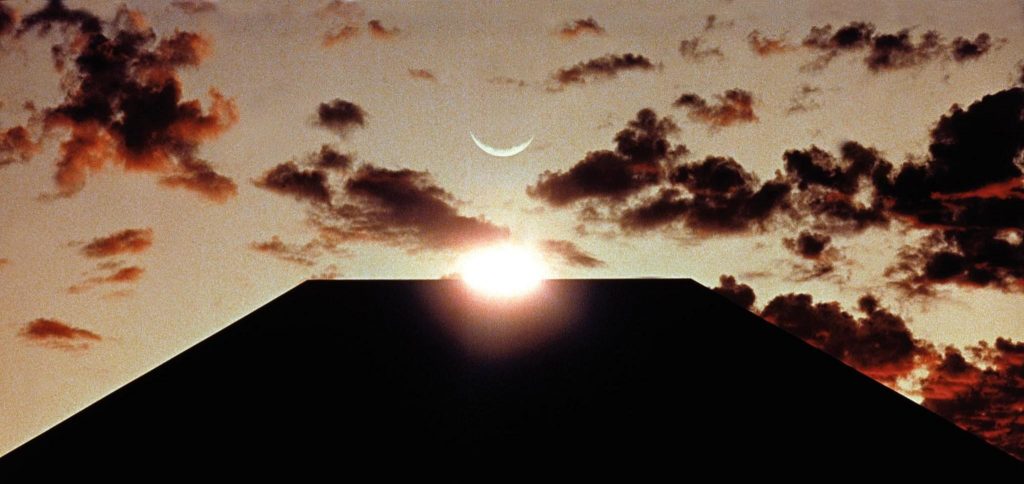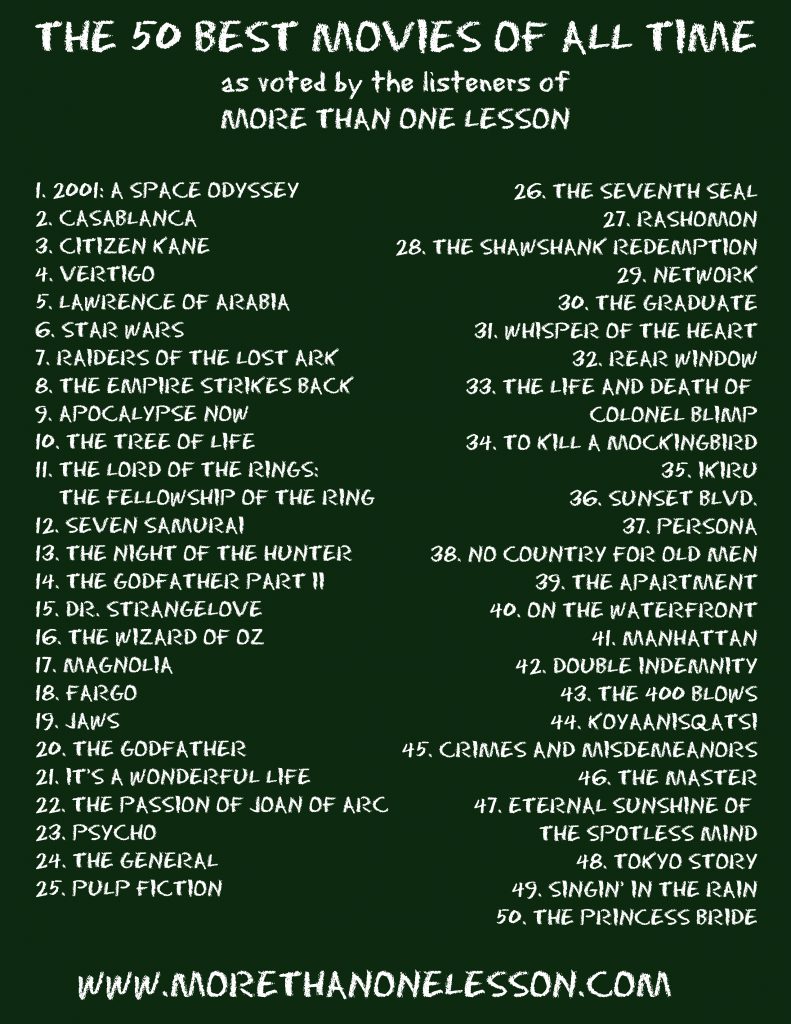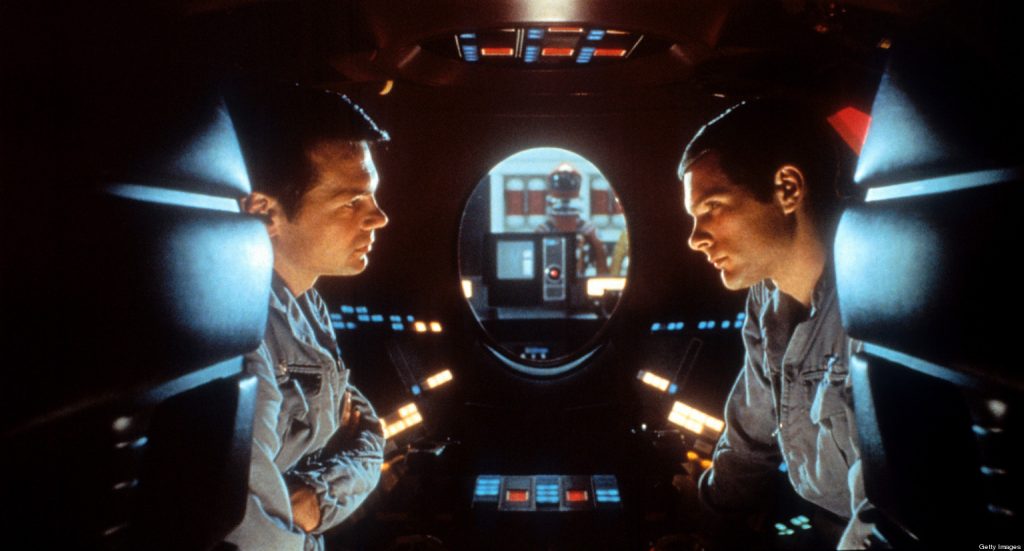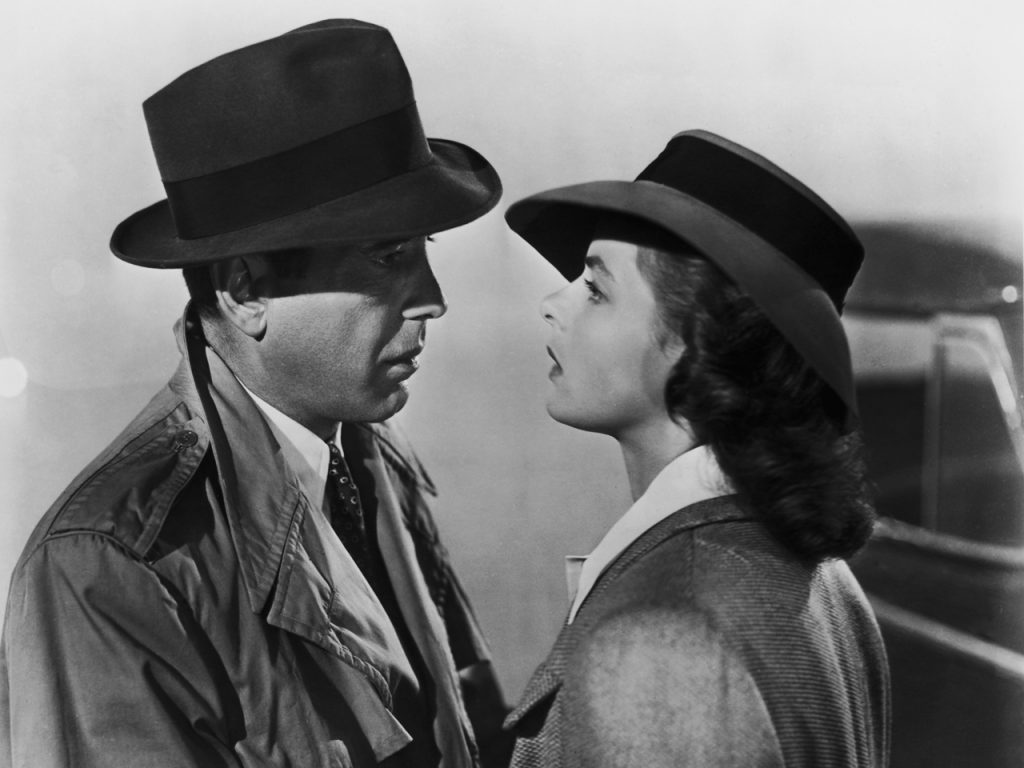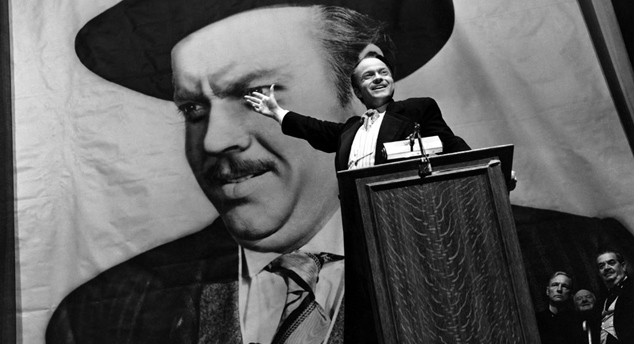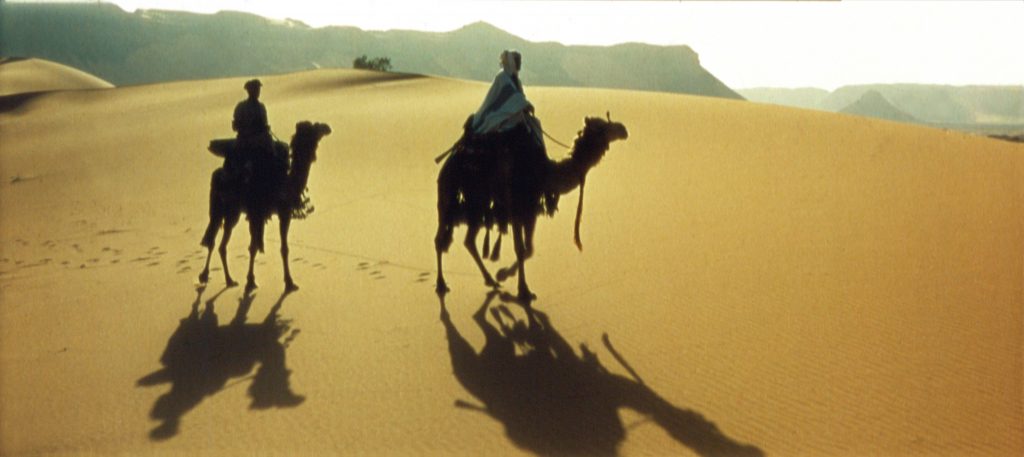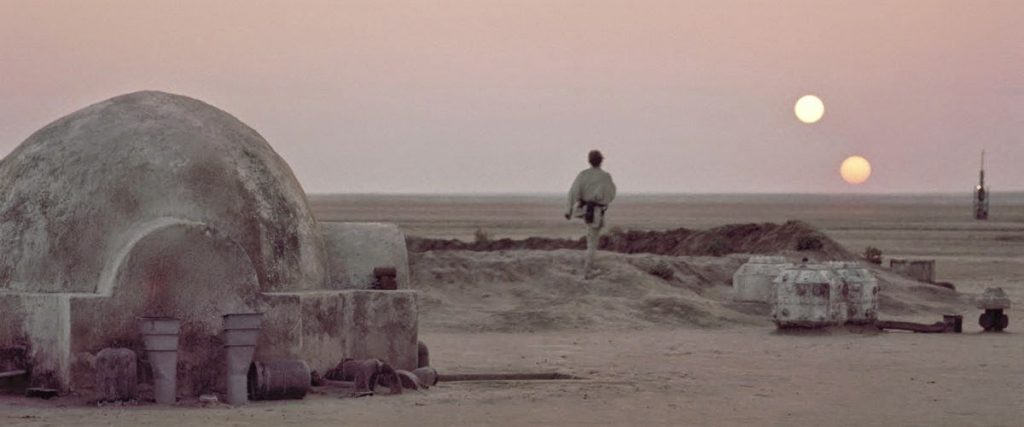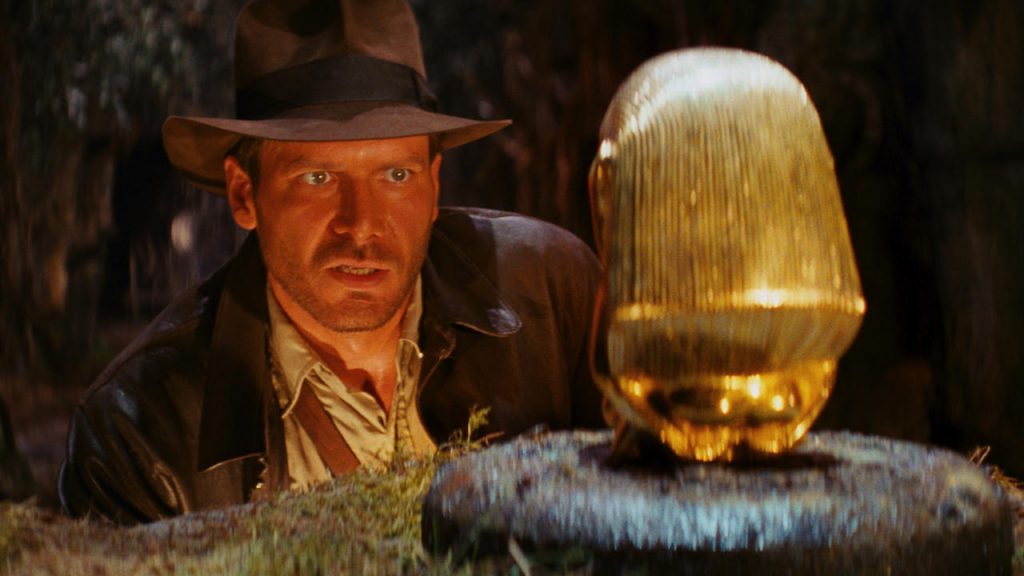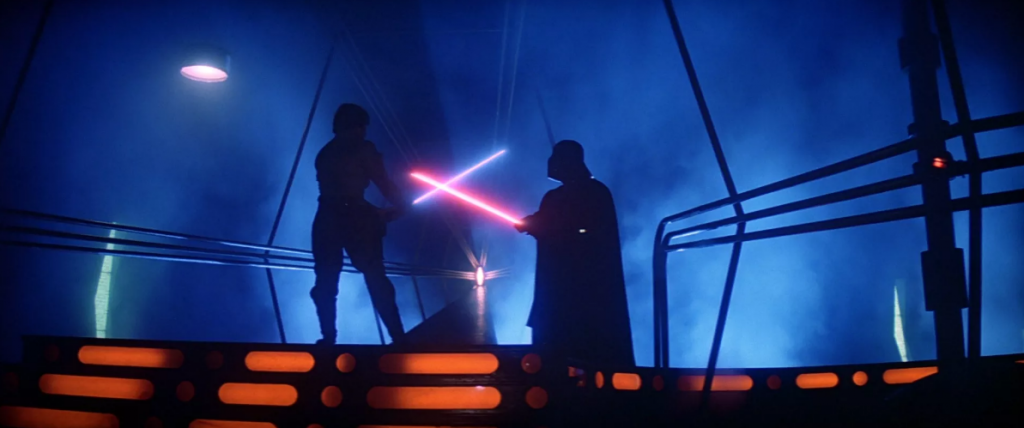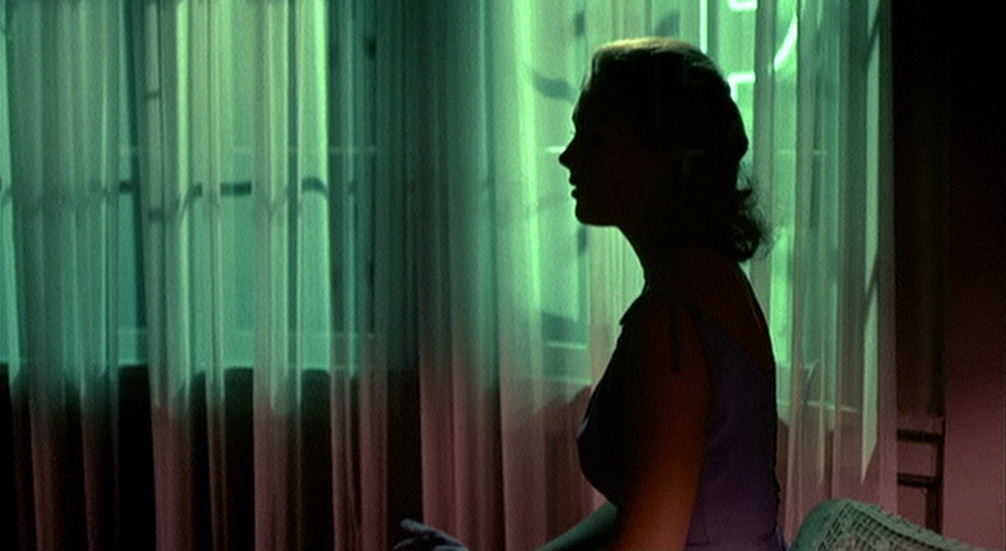
dir. Alfred Hitchcock
The most common statement I hear after any first-time viewing of Vertigo (and I said it myself the first time I saw it) is, “That wasn’t at all what I was expecting.”
It’s an understandable reaction. Alfred Hitchcock is known for thrills and suspense, for political conspiracies and wrongfully accused protagonists. And with the opening scene in Vertigo, it’s hinted that you might be receiving more of the same. But the opening scene, a chase across rooftops, is not a narrative setup, but a character one. It’s meant to establish the condition of Scottie Ferguson — played brilliantly as usual by Jimmy Stewart — that gives the film its title.
Something of a critical and commercial dud when it was first released (it barely broke even at the box office and received mostly mixed reviews), there has been a distinct re-evaluation (and steadily increased admiration) of its merits since the late 70s. This makes rather good sense, as it is a film which rewards re-evaluation. If you saw it for the first time understanding that it is considered a masterpiece, you’re just as likely to leave the film scratching your head and wondering what you missed as you are to exit singing its praises.
We typically presume that a story’s plot is its defining quality, particularly when it comes to suspense films. But with Vertigo, the narrative is largely frustrating, and contains more than a few question marks as to how certain things happen and whether or not they resolve. Viewers are likely to try to follow the clues to the mystery when the mystery itself is largely a red herring. The mystery isn’t the point, the man at the center of it is.
Vertigo is a condition which causes its victims to become dizzy and light-headed as they near heights. It’s often accompanied by severe anxiety. Scottie Ferguson is haunted by the condition and by the cost it has brought to him (a drastic change in his career and the death of a fellow officer). The film is a measured examination of the power which our own limitations (whether they be internal, external, or psychological) have on how we understand and navigate through our little world. The film begins at one height and ends at another, with the man in the midst of both having taken a nightmarish journey through the treachery of obsession, phobia and paranoia.
The mystery of the film’s plot and the mystery of the film’s protagonist are both solved, but the film is only primarily concerned with one of them. Because ultimately the most compelling mystery of all is humanity, both the heights we will so often try to climb and the dizzying lengths we will go to in order to get there.

